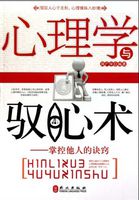"Now the entire field of productive and constructive industry is divided into ten great departments, each representing a group of allied industries, each particular industry being in turn represented by a subordinate bureau, which has a complete record of the plant and force under its control, of the present product, and means of increasing it. The estimates of the distributive department, after adoption by the administration, are sent as mandates to the ten great departments, which allot them to the subordinate bureaus representing the particular industries, and these set the men at work. Each bureau is responsible for the task given it, and this responsibility is enforced by departmental oversight and that of the administration; nor does the distributive department accept the product without its own inspection; while even if in the hands of the consumer an article turns out unfit, the system enables the fault to be traced back to the original workman. The production of the commodities for actual public consumption does not, of course, require by any means all the national force of workers. After the necessary contingents have been detailed for the various industries, the amount of labor left for other employment is expended in creating fixed capital, such as buildings, machinery, engineering works, and so forth.""One point occurs to me," I said, "on which I should think there might be dissatisfaction. Where there is no opportunity for private enterprise, how is there any assurance that the claims of small minorities of the people to have articles produced, for which there is no wide demand, will be respected? An official decree at any moment may deprive them of the means of gratifying some special taste, merely because the majority does not share it.""That would be tyranny indeed," replied Dr. Leete, "and you may be very sure that it does not happen with us, to whom liberty is as dear as equality or fraternity. As you come to know our system better, you will see that our officials are in fact, and not merely in name, the agents and servants of the people. The administration has no power to stop the production of any commodity for which there continues to be a demand. Suppose the demand for any article declines to such a point that its production becomes very costly. The price has to be raised in proportion, of course, but as long as the consumer cares to pay it, the production goes on. Again, suppose an article not before produced is demanded. If the administration doubts the reality of the demand, a popular petition guaranteeing a certain basis of consumption compels it to produce the desired article. A government, or a majority, which should undertake to tell the people, or a minority, what they were to eat, drink, or wear, as Ibelieve governments in America did in your day, would be regarded as a curious anachronism indeed. Possibly you had reasons for tolerating these infringements of personal independence, but we should not think them endurable. I am glad you raised this point, for it has given me a chance to show you how much more direct and efficient is the control over production exercised by the individual citizen now than it was in your day, when what you called private initiative prevailed, though it should have been called capitalist initiative, for the average private citizen had little enough share in it.""You speak of raising the price of costly articles," I said. "How can prices be regulated in a country where there is no competition between buyers or sellers?""Just as they were with you," replied Dr. Leete. "You think that needs explaining," he added, as I looked incredulous, "but the explanation need not be long; the cost of the labor which produced it was recognized as the legitimate basis of the price of an article in your day, and so it is in ours. In your day, it was the difference in wages that made the difference in the cost of labor;now it is the relative number of hours constituting a day's work in different trades, the maintenance of the worker being equal in all cases. The cost of a man's work in a trade so difficult that in order to attract volunteers the hours have to be fixed at four a day is twice as great as that in a trade where the men work eight hours. The result as to the cost of labor, you see, is just the same as if the man working four hours were paid, under your system, twice the wages the others get. This calculation applied to the labor employed in the various processes of a manufactured article gives its price relatively to other articles. Besides the cost of production and transportation, the factor of scarcity affects the prices of some commodities. As regards the great staples of life, of which an abundance can always be secured, scarcity is eliminated as a factor. There is always a large surplus kept on hand from which any fluctuations of demand or supply can be corrected, even in most cases of bad crops. The prices of the staples grow less year by year, but rarely, if ever, rise. There are, however, certain classes of articles permanently, and others temporarily, unequal to the demand, as, for example, fresh fish or dairy products in the latter category, and the products of high skill and rare materials in the other. All that can be done here is to equalize the inconvenience of the scarcity. This is done by temporarily raising the price if the scarcity be temporary, or fixing it high if it be permanent. High prices in your day meant restriction of the articles affected to the rich, but nowadays, when the means of all are the same, the effect is only that those to whom the articles seem most desirable are the ones who purchase them. Of course the nation, as any other caterer for the public needs must be, is frequently left with small lots of goods on its hands by changes in taste, unseasonable weather and various other causes. These it has to dispose of at a sacrifice just as merchants often did in your day, charging up the loss to the expenses of the business. Owing, however, to the vast body of consumers to which such lots can be simultaneously offered, there is rarely any difficulty in getting rid of them at trifling loss.
同类推荐
热门推荐
穿越之特工王妃很倾城
她本是二十一世纪的特工,却因被人陷害重生于异域,成为一个等级最低的人。她嚣张跋扈,却又内心温柔;她冷酷无情,却又悲天悯人;她风华绝代,举世无双。面对完全陌生的异域制度,和陌生的守护男神,她审时度势用自己的方式,适应着这里的人们,也让这里的人们适应着她,并过得风生水起,成为众多女人羡慕的人。【情节虚构,请勿模仿】















